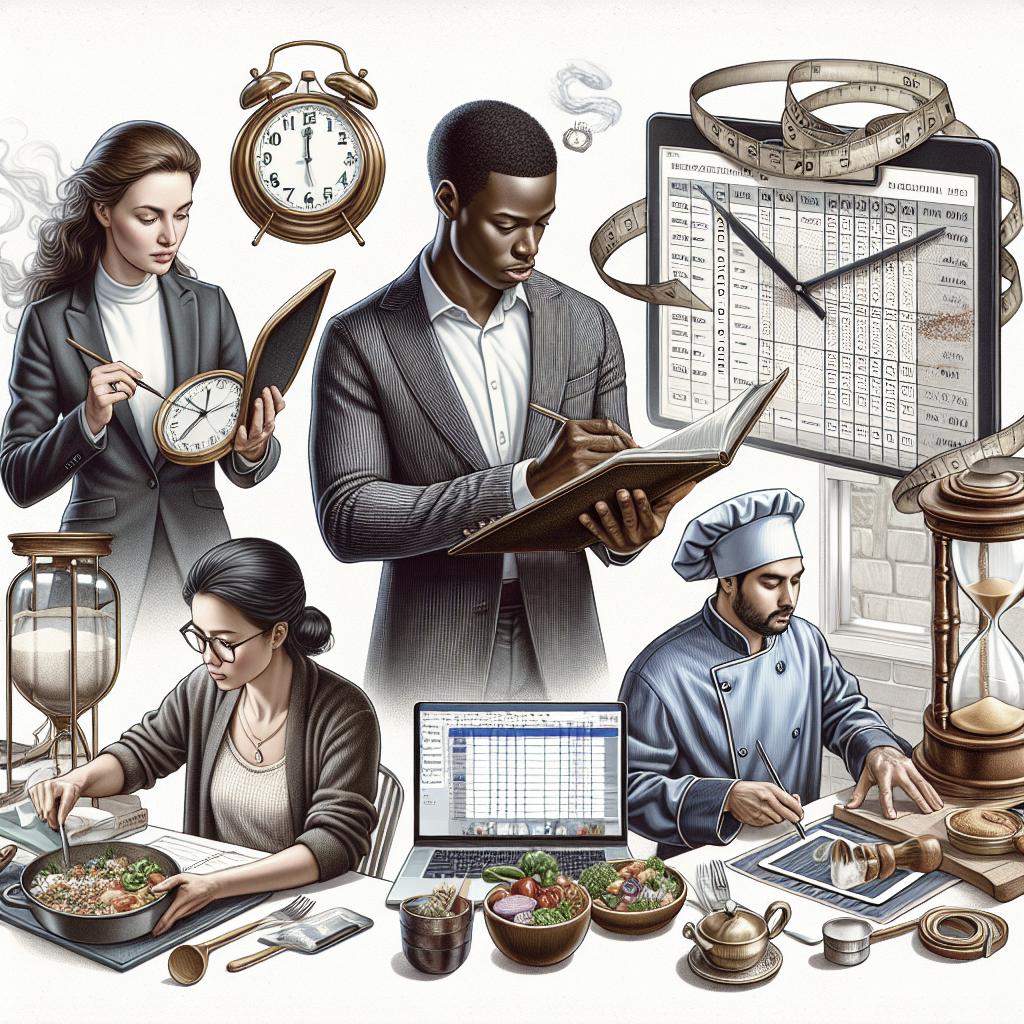“`html
Techniques for Effective Brainstorming
Brainstorming is a vital part of the creative process, offering a way to generate ideas, solve problems, and foster innovation. When carried out effectively, brainstorming sessions can unlock the creative potential within a team, leading to innovative solutions and new perspectives. In this blog post, we will explore the benefits of team brainstorming, offer tips for facilitating productive sessions, and introduce ten effective techniques to enhance your brainstorming sessions. By the end of this post, you’ll be equipped with the tools and knowledge to maximize creativity and collaboration within your team.
Benefits of Team Brainstorming
Team brainstorming combines the diverse skills, insights, and perspectives of group members, exponentially increasing the range of potential solutions. It provides a platform for collaborative creativity where ideas can be born from the synergy of teamwork. The act of exchanging thoughts and building upon each other’s ideas often leads to unexpected breakthroughs that a single mind might not achieve.
Beyond generating ideas, team brainstorming also helps in building team camaraderie and morale. As team members engage in collective problem-solving, they develop a shared vision and a sense of ownership over the outcomes. This creates a more inclusive and dynamic work environment where each member feels valued and heard. Additionally, brainstorming can improve critical thinking skills and enhance the team’s ability to tackle future challenges effectively.
Five Tips for Running Effective Team Brainstorming Sessions
Effective brainstorming sessions begin with clear objectives. Before gathering your team, ensure that you have defined the goal of the session and what you hope to achieve. Communicating this objective helps to focus energy and creativity toward a common purpose.
Encourage a judgment-free environment where ideas can flow without criticism. The understanding that there are no bad ideas fosters open dialogue and uninhibited creativity. Establish ground rules that promote active listening and equal participation so that all members feel confident in contributing.
Engage the team with a diverse set of brainstorming techniques to keep the session dynamic and stimulating. Taking breaks and allowing time for reflection also helps maintain energy levels and allows for more refined ideas to emerge. Finally, ensure that there is a process for capturing and categorizing ideas to keep track of the discussion and facilitate follow-up actions.
10 Effective Team Brainstorming Techniques
1. Brainwriting
Brainwriting is a technique that allows participants to write down their ideas independently before sharing them with the group. This is often more efficient than traditional brainstorming because it eliminates a lot of groupthink and allows quieter team members to present their ideas with equal weight.
In practice, each participant writes their ideas on paper and then passes them to the next person, who builds upon or generates new ideas from them. This method promotes the expansion of ideas as team members see problems from multiple perspectives.
2. Rapid Ideation
Rapid ideation involves setting a specific time limit for participants to generate as many ideas as possible. This fast-paced approach encourages free thinking as the pressure of time reduces the tendency to self-edit or overthink ideas.
This method is particularly effective when combined with tools such as timer apps or countdown clocks, stimulating creative thinking by making quick decisions and sketching ideas rapidly, further promoting a culture of innovation and spontaneity.
3. Figure Storming
Figure storming introduces the creative concept of imagining how someone else—such as a celebrity or historical figure—might tackle a problem. This technique allows team members to break out of their molds and view a challenge through a different lens.
This role-play encourages innovation by allowing teams to think outside conventional methodologies. As team members brainstorm under the guise of another persona, they often feel liberated to suggest unconventional solutions they might otherwise consider out of the question.
4. Eidetic Image Method
The eidetic image method leverages visualization as a brainstorming tool. Participants close their eyes and visualize mental images related to the topic at hand. By tapping into the power of the mind’s eye, team members can explore abstract concepts in a tangible way.
After visualizing, participants are encouraged to describe what they saw and record these images. This can spur creative ideas that are less accessible through verbal brainstorming techniques, as the visual nature stimulates different areas of cognitive thought.
5. Online Brainstorming, aka Brain Netting
Online brainstorming, or brain netting, uses digital tools to connect dispersed team members in virtual ideation sessions. This technique capitalizes on the flexibility and accessibility of online platforms, making it suitable for remote teams or global organizations.
Utilizing collaborative software like digital whiteboards or messaging apps allows teams to brainstorm in real-time, sharing ideas with the added benefit of having them automatically documented. This fosters instantaneous collaboration while minimizing geographical constraints.
6. Round-robin Brainstorming
Round-robin brainstorming involves each participant contributing one idea at a time in a structured manner. This encourages equal participation and ensures that all voices are heard, particularly those who are more reserved.
By taking turns, it systematically extracts a variety of ideas while preventing louder voices from dominating the session. This technique helps in sharing the floor and diversifying the pool of ideas, making it ideal for more balanced team interactions.
7. Step-ladder Technique
The step-ladder technique is structured to gradually include all team members into the brainstorming process. Initially, two members work on the problem, and as each additional member joins, they present their ideas without being influenced by earlier discussions.
This method ensures fresh perspectives are continuously introduced, maintaining creativity throughout the session. Additionally, it balances participation by actively engaging and integrating each team member step-by-step.
8. Mind Mapping
Mind mapping is a visual brainstorming technique that organizes ideas around a central concept, using branches to explore further associated thoughts. This creates a visual representation of ideas that can be easily followed and expanded upon collaboratively.
This technique is especially useful for understanding complex problems, as it can reveal connections and patterns between ideas that might not be apparent in linear brainstorming approaches, helping teams delve deeper into analysis and solution-generating phases.
9. Starbursting
Starbursting focuses on generating questions rather than answers. The technique involves brainstorming the ‘who,’ ‘what,’ ‘where,’ ‘when,’ ‘why,’ and ‘how’ related to a challenge, which encourages thorough exploration of a problem.
This inquisitive method promotes critical thinking by examining all facets of a challenge, ensuring no aspect is overlooked. It is highly effective for projects in the early stages of development, where understanding details and context is crucial.
10. Change of Scenery
Sometimes, a change of environment is all it takes to re-energize a brainstorming session. Conducting the session in a new location or using innovative setups can provide fresh perspectives and new stimuli for the team.
Such sensory changes can stimulate creativity, remove the usual office confines, and break routine team patterns. This flexibility demonstrates the ability of physical spaces to influence mental spaces, fostering an adaptable and creative team culture.
Future Prospects
An effective brainstorming process can open up numerous opportunities for growth, innovation, and problem-solving. By cultivating a culture that encourages creative thinking and collaboration, organizations can harness the power of diverse perspectives and ideas. With these techniques, teams can continuously adapt and thrive, responding to challenges with innovative solutions. The tools and methods explored here can be pivotal in crafting processes that inspire, energize, and connect team members.
| Technique | Description |
|---|---|
| Brainwriting | Participants write ideas independently and build upon each other’s submissions. |
| Rapid Ideation | Quick generation of ideas within a set time frame to encourage creativity. |
| Figure Storming | Creative brainstorming through the perspective of a well-known figure. |
| Eidetic Image Method | Visualization technique for embracing abstract concepts through images. |
| Online Brainstorming | Digital platforms for real-time collaboration and idea sharing. |
| Round-robin Brainstorming | Equalized contributions from each team participant, one at a time. |
| Step-ladder Technique | Gradual inclusion of team members to maintain fresh idea input. |
| Mind Mapping | Visual organization of ideas around a central concept to identify patterns. |
| Starbursting | Focus on generating questions to explore problem dimensions fully. |
| Change of Scenery | Utilizing new environments to stimulate creativity and innovation. |
“`

